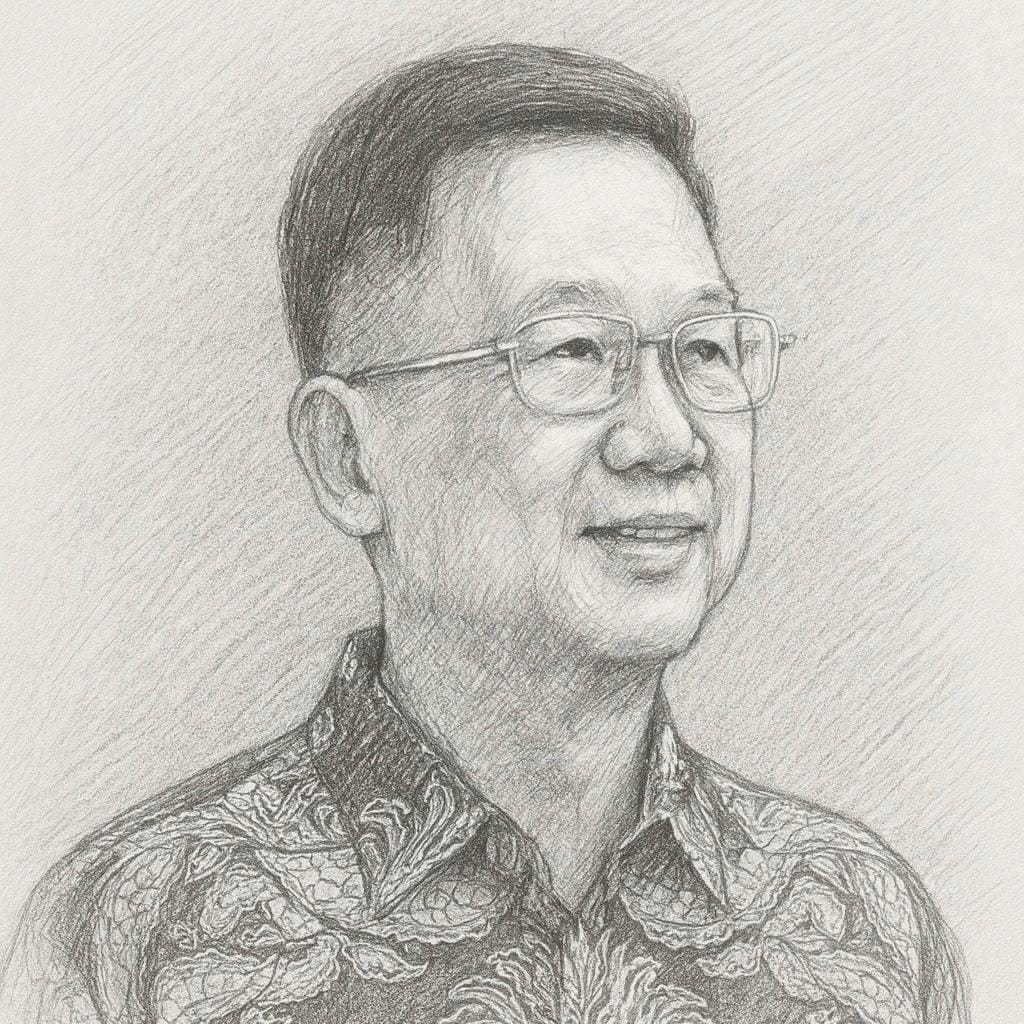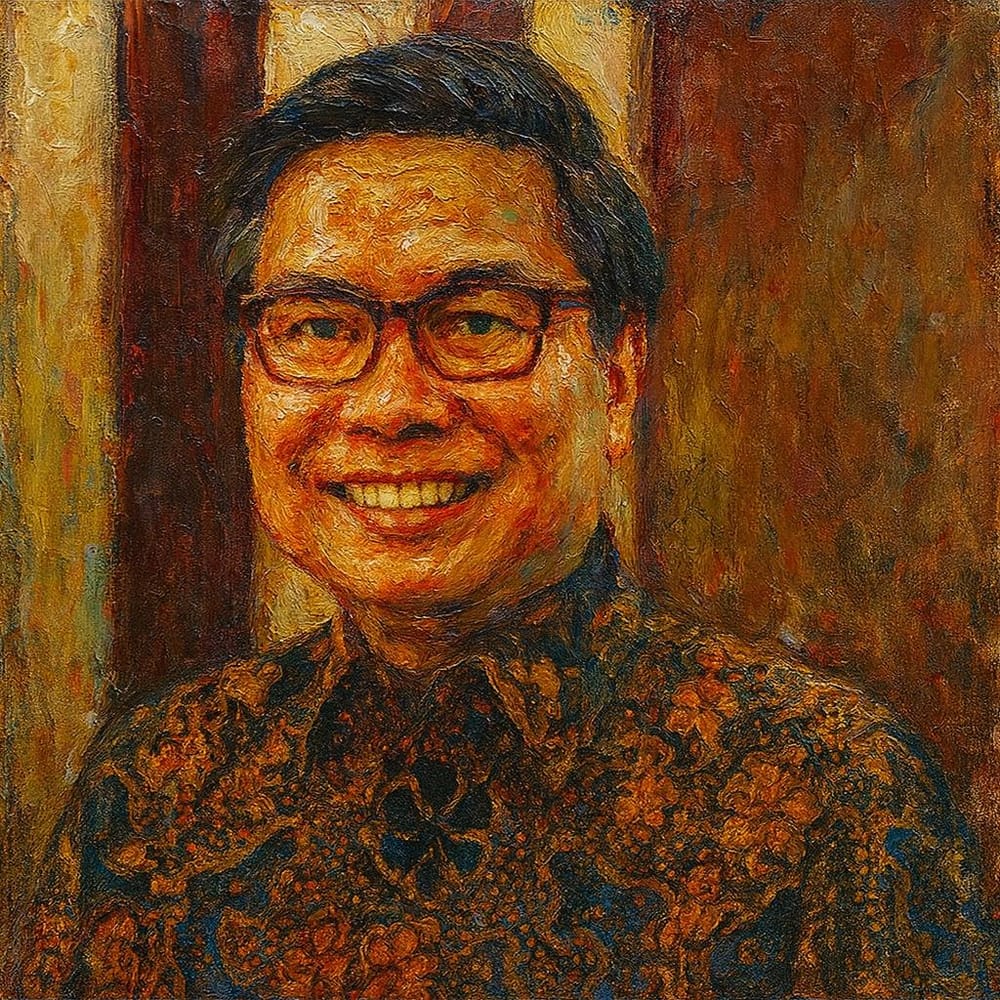Theodorus Wiryawan (CEO of Aneka Coffee Industries and Ottodigital)
This article is the opinion of the CEO of Aneka Coffee Industries & Ottodigital). If you are interested in becoming an opinion contributor, please sign up here.
One day in early 2000 in Washington DC, I had lunch with friends from Thailand at a Thai restaurant. They said Thailand wanted to be known as the "Kitchen of the World".
They said that about 45 years ago, the King sent Thai sons and daughters to study agriculture and many studied at IPB Bogor. After graduating, they seriously developed agriculture in Thailand. The results were very good.
We still remember the terms Bangkok guava, Bangkok mango, Bangkok papaya, Bangkok longan. The perception is clear; the quality of Thai fruits and agricultural products is very good, both in taste, size, and aroma. The problem is that these agricultural products cannot be absorbed domestically. There is an abundance of produce. It needs to be exported.
The next step is to open up distribution channels to the rest of the world in an interesting way that has very good implications, namely through Thai restaurants.
When I lived in Silver Spring Maryland USA, I saw about 20 Thai restaurants between Silver Spring and down town in Washington DC. Not to mention downtown around the White House, there are more than 8 Thai restaurants. That's a lot of restaurants compared to other countries.
Comparatively, there are only two restaurants that sell Indonesian food and they have closed down as well. One of them, owned by the late Mr. Christianto Wibisono, opened an Indonesian restaurant in Washington DC.

I asked my friends from Thailand, how come there are so many Thai restaurants? They shared an interesting experience. When they were going to study in the US, they were asked where they would work after graduation? Most of them answered that they would work in big companies, such as Microsoft, Coca-cola, IBM, Citibank.
The government representative asked if they were interested in working in Thai restaurants. They would be given training, internships, a stipend, and be given the convenience of setting up a Thai restaurant in the US. Of the dozens of students, one or two were interested in working in Thai restaurants.
Why is the government so serious about offering students work in Thai restaurants? As it turns out, Thai restaurants are distributors of Thai agricultural products in the US. Every day, many airplanes bring various Thai agricultural products to the US. Around Washington DC alone, there are 30 Thai restaurants. Not to mention in Europe and other countries.
There are estimated to be more than 500 Thai restaurants across the US.
The Thai government invaded the US and other countries through food with the concept of Thailand as the kitchen of the world. In this way, Thai agricultural products received tremendous added value and Thai food spread worldwide in a remarkable way.
The global Thai world kitchen movement has paid off. The number of Thai restaurants around the world doubled, from 5,500 in 2001 to 13,000 in 2008. Today, there are an estimated 20,000 Thai restaurants worldwide.
In 2001, the Thai government established the Global Thai Restaurant Company, Ltd. in an effort to establish thousands of Thai restaurants around the world.
There are at least 5 ministries involved such as the Ministry of Foreign Affairs, Ministry of Tourism, Ministry of Education, Ministry of Trade (export promotion section), Ministry of Health, and several other agencies are fully involved in this gastrodiplomacy.
Thai food experts are constantly trying to discover and concoct new recipes to be served in Thai restaurants around the world. Not only that, when there are already tens of thousands of restaurants around the world, in addition to continuing to improve the campaign, the next challenge is to keep the quality of these restaurants high.

The Thai government regulates standardization and policies related to Thai cuisine called the Division of Thai Export Promotion. The Thai government's efforts to preserve the flavors of traditional cuisine and expand the business to worldwide fame have been quite successful.
The Thai government then created "Thai Select", which certifies overseas Thai restaurants as "Authentic" and "high quality" based on inspections and criteria such as being open at least one year, operating at least five days a week, certified by Visa or American Express credit card companies, employing Thai chefs with a background in Thai cuisine, using ingredients and equipment from Thailand, and offering at least six Thai dishes on the menu.
Besides food quality, other criteria are involved, such as food safety, packaging, raw materials, food preparation steps, and chef skills.
The Thai government is also cooperating with investors. With models provided by the government, entrepreneurs can choose from a number of types of restaurants that can be built, from fast food to elegant. For Thai nationals who want to get into the restaurant business abroad, soft loans are also provided.
Another step to promote Thai cuisine is to provide easy visas for chefs who will serve abroad.
The global Thai cuisine market value reached USD 9.00 billion by 2024.
This market is projected to grow from USD 9.68 billion in 2025 to USD 16.46 billion by 2032, at a CAGR of 7.88% during the forecast period.
The Thai government then developed the world's halal kitchen and halal center in Southeast Asia. The main institution responsible for ensuring compliance with the rules governing halal food in Thailand is the Halal Science Centre at Chulalongkorn University in Bangkok, which has developed a standardization system known as Halal Assurance, Liability-Quality System, or HAL-Q, which is used by more than 770 food factories and 7,000 restaurants, allowing them to use the word "halal" in their marketing.
Another impact of the success of Thai restaurants is the increase in tourism to Thailand. Thailand is one of the most visited countries by outsiders in the world. In 2019, nearly 40 million foreign tourists visited the country, beating the number of tourists to Germany or the UK.
In Asia, only China and Thailand were among the top 10 most visited countries by foreign tourists in the world last year. In a study titled "Consumer behaviors of foreign tourists in Thailand on Thai food", it was found that there is a significant correlation of the role of Thai restaurants around the world, to the growing enthusiasm for visiting and traveling to Thailand.
The story of Thai Dapur untuk Dunia is an interesting example, both in terms of government support, collaboration and coordination that integrates to bring significant economic impact. It can be a lesson in collaboration between the business world and our government as long as it is taken seriously.
Collaboration is one of the mantras for our economic growth. Collaboration allows government and business to combine resources and expertise, spark innovation and the development of new ideas, exchange knowledge and experience, find solutions to challenges, while promoting transparency and accountability in various activities.
.


